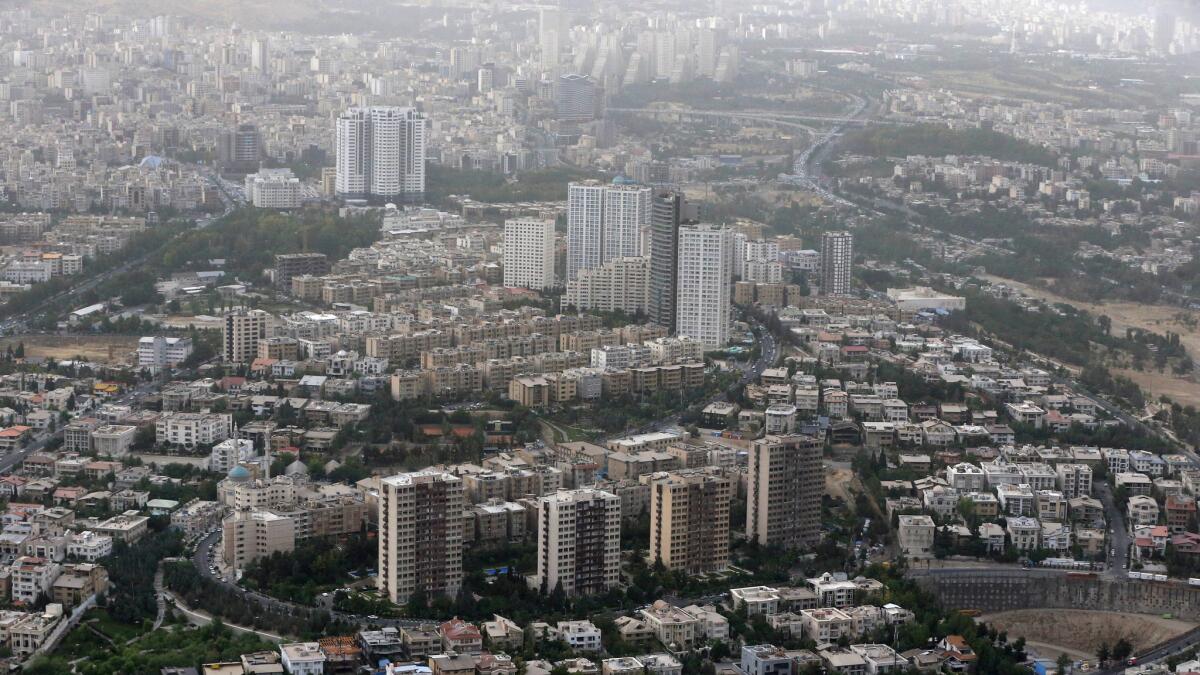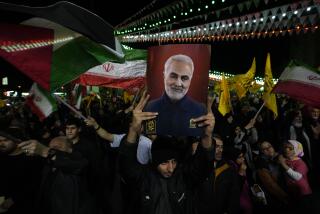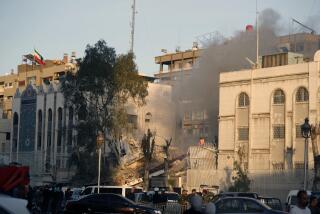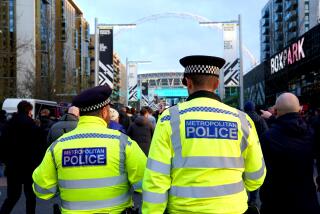Iran says it’s foiled one of the ‘biggest terrorist’ plots ever against the country

Iranian intelligence officials have broken up one of the “biggest terrorist” plots ever planned to target Tehran and other provinces in the Islamic Republic, the country’s state media reported Monday.
The reports quote the country’s Intelligence Ministry as saying that it has arrested several suspects in the plot to bomb the capital and other provinces, seizing bombs and ammunition during the operation.
The Intelligence Ministry statement, read live on Iranian state television and carried across the country’s news agencies, had little detail. The announcement comes as Iran finds itself battling the Islamic State group while also supporting Syria’s embattled President Bashar Assad in his country’s long, bloody civil war.
The semi-official Fars and ISNA news agencies quoted Ali Shamkhani, the secretary of Iran’s Supreme National Security Council, as saying the attack was timed to hit during the Muslim holy month of Ramadan. Iran’s state-run IRNA news agency, citing the Intelligence Ministry, said the attack was supposed to come on the anniversary of the death of the prophet Muhammad’s wife, Khadija, which was commemorated in small ceremonies across Iran on Thursday.
The report didn’t identify those arrested, though it called them “takfiris,” a derogatory term in Arabic and Farsi referring to Muslims who accuse others of being “nonbelievers.”
Iranian authorities often refer to followers of the Sunni militant Islamic State group as “takfiris,” though it isn’t clear if this case involved the extremist group that holds territory in Iraq and Syria.
Shiite power Iran has been helping the Syrian and the Iraqi government in their battles against the Islamic State group.
IRNA, however, called those involved in the plot “Wahhabi takfiris” in its report in Farsi on the arrests. Wahhabism is an ultraconservative school of Islam practiced predominantly in Saudi Arabia.
Relations between Iran and Saudi Arabia have frayed following the kingdom’s execution of a prominent Shiite cleric in January and subsequent attacks by protesters on Saudi diplomatic posts in Iran. The kingdom cut diplomatic relations with Tehran following those attacks.
Iran recently announced that it would not be sending pilgrims to Saudi Arabia for the annual hajj pilgrimage, as it said the kingdom did not meet Iran’s requests for better security for Iranian pilgrims. The hajj pilgrimage is required of all able-bodied Muslims once in their lifetime.
In May, Iranian Intelligence Minister Mahmoud Alavi announced that 20 “terrorist groups” that planned to detonate bombs and cause insecurity across the country. It’s unclear whether that included the plot announced Monday by state television. Though authorities have announced breaking up other plots in the past, they have not described those plots with the same terms used on Monday.
Iran faces threats from several militant groups. Last week, Iran’s Revolutionary Guard battled armed members of an insurgent Kurdish group in the country’s West Azerbaijan province near its border with Iraq and Turkey.
Both sides gave conflicting death tolls from the fighting, as the Guard said its forces killed 12 insurgents while three of its own died. The Democratic Party of Iranian Kurdistan said Kurds killed over 12 Guard members, including a colonel.
Iran has warned of possible militant assaults targeting the country, which hasn’t seen large-scale attacks since the immediate aftermath of its 1979 Islamic Revolution. It suffered its worst attack in June 28, 1981, when a blast at the ruling Islamic Republican Party’s central headquarters in Tehran killed at least 72 people, including the party’s leader, four government ministers, eight deputy ministers and 23 parliament members.
Following that attack, Iran’s security agencies and the paramilitary Guard tightened their grip on security in the country.
ALSO
Tens of thousands of Japanese protesters oppose U.S. troops in Okinawa
How the Orlando attack prompted a quiet debate on gay America among the global LGBT community
British authorities look at possible links to right-wing extremism for suspect in lawmaker’s slaying
UPDATES:
3:30 a.m.: This article has been updated throughout with additional new details.
This article was originally published at 12:44 a.m.
More to Read
Start your day right
Sign up for Essential California for news, features and recommendations from the L.A. Times and beyond in your inbox six days a week.
You may occasionally receive promotional content from the Los Angeles Times.






